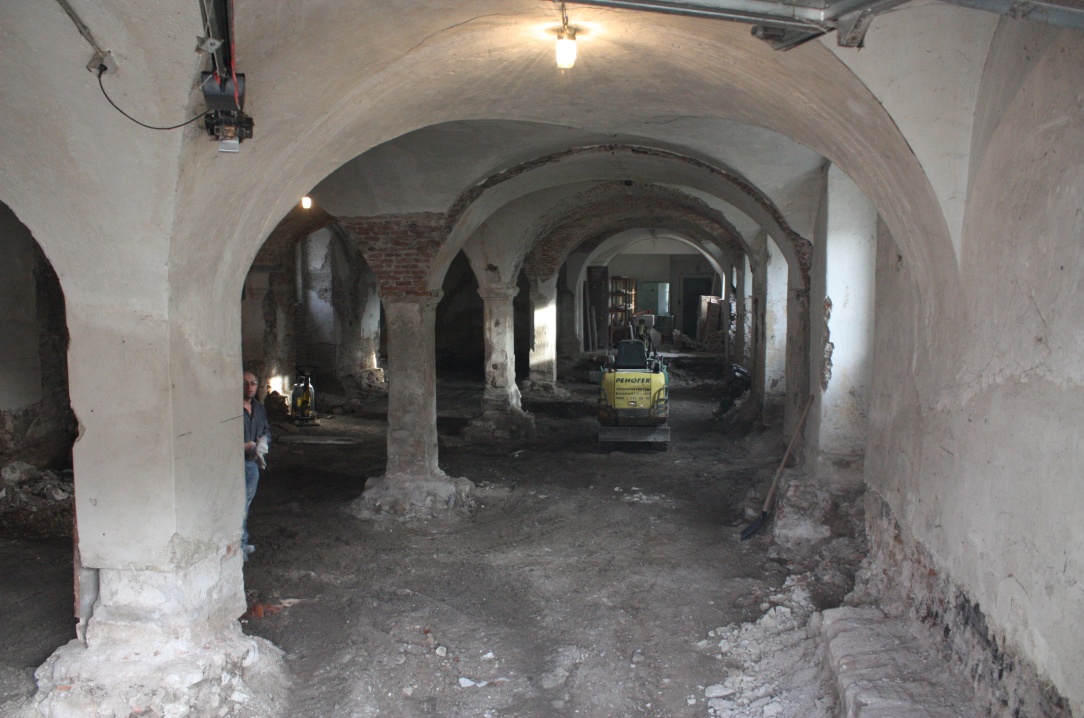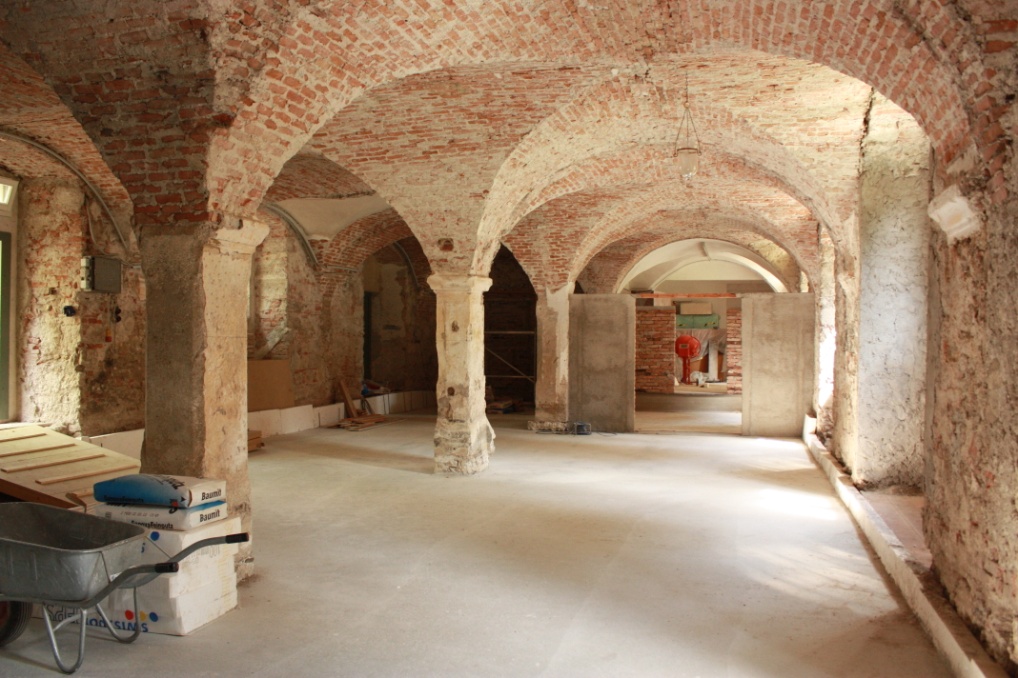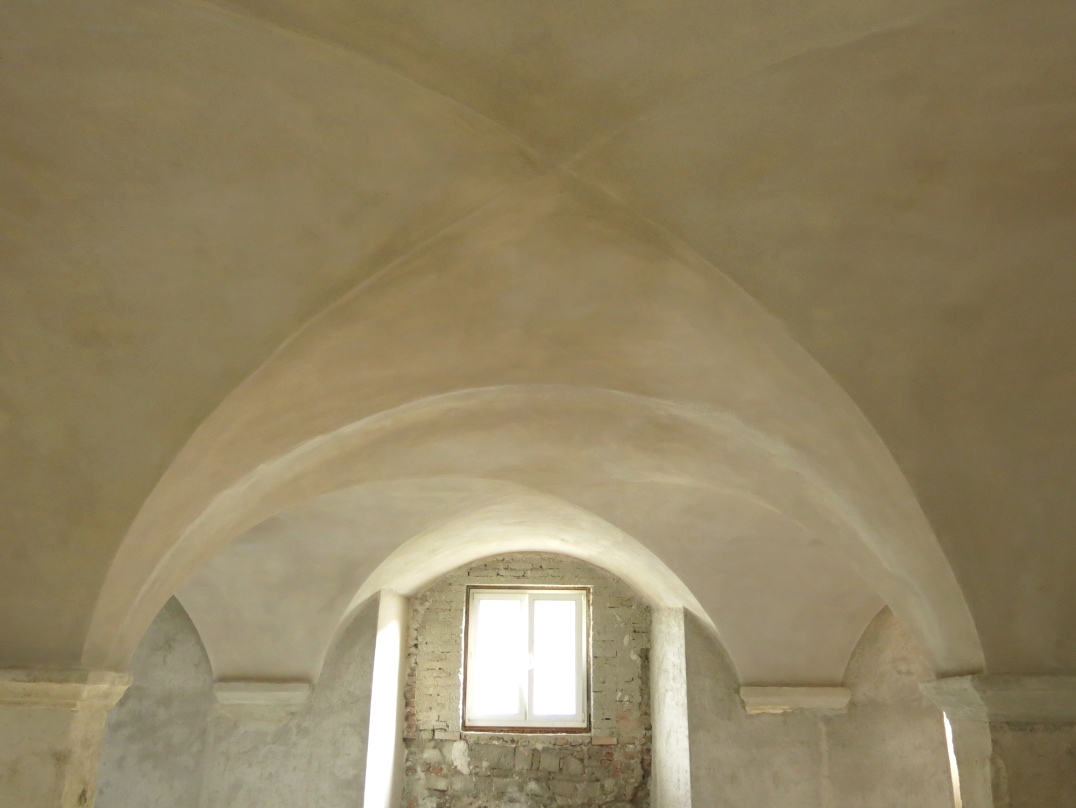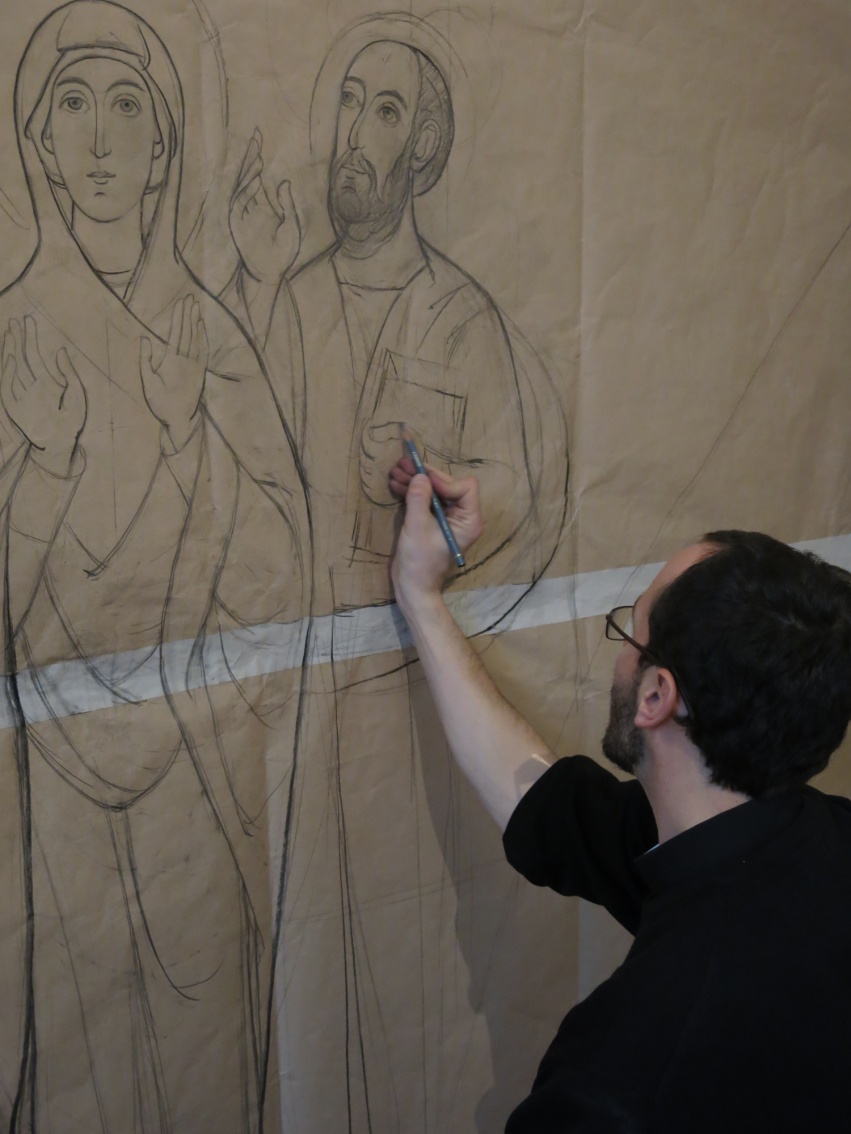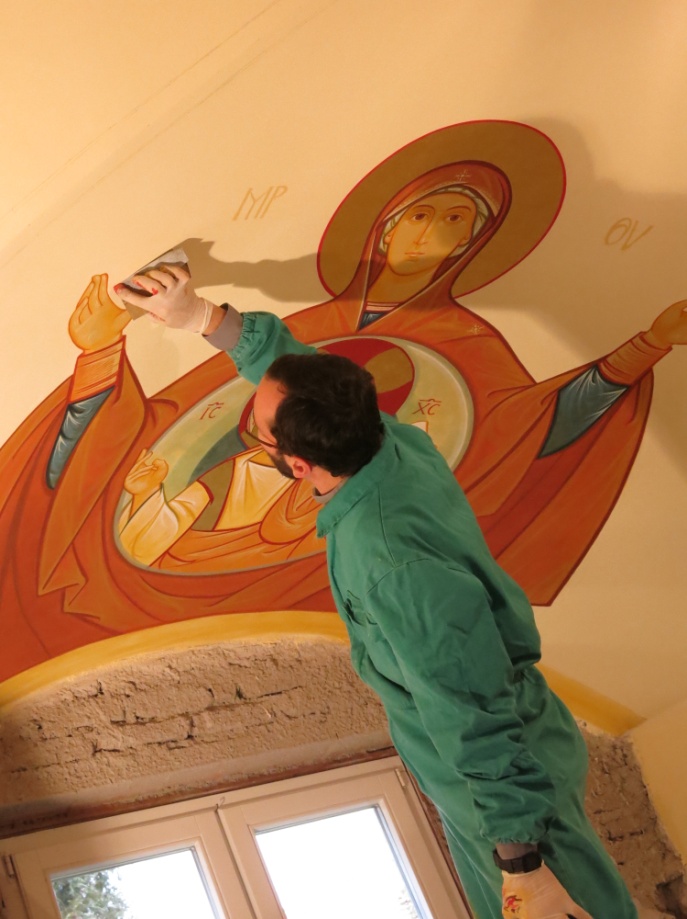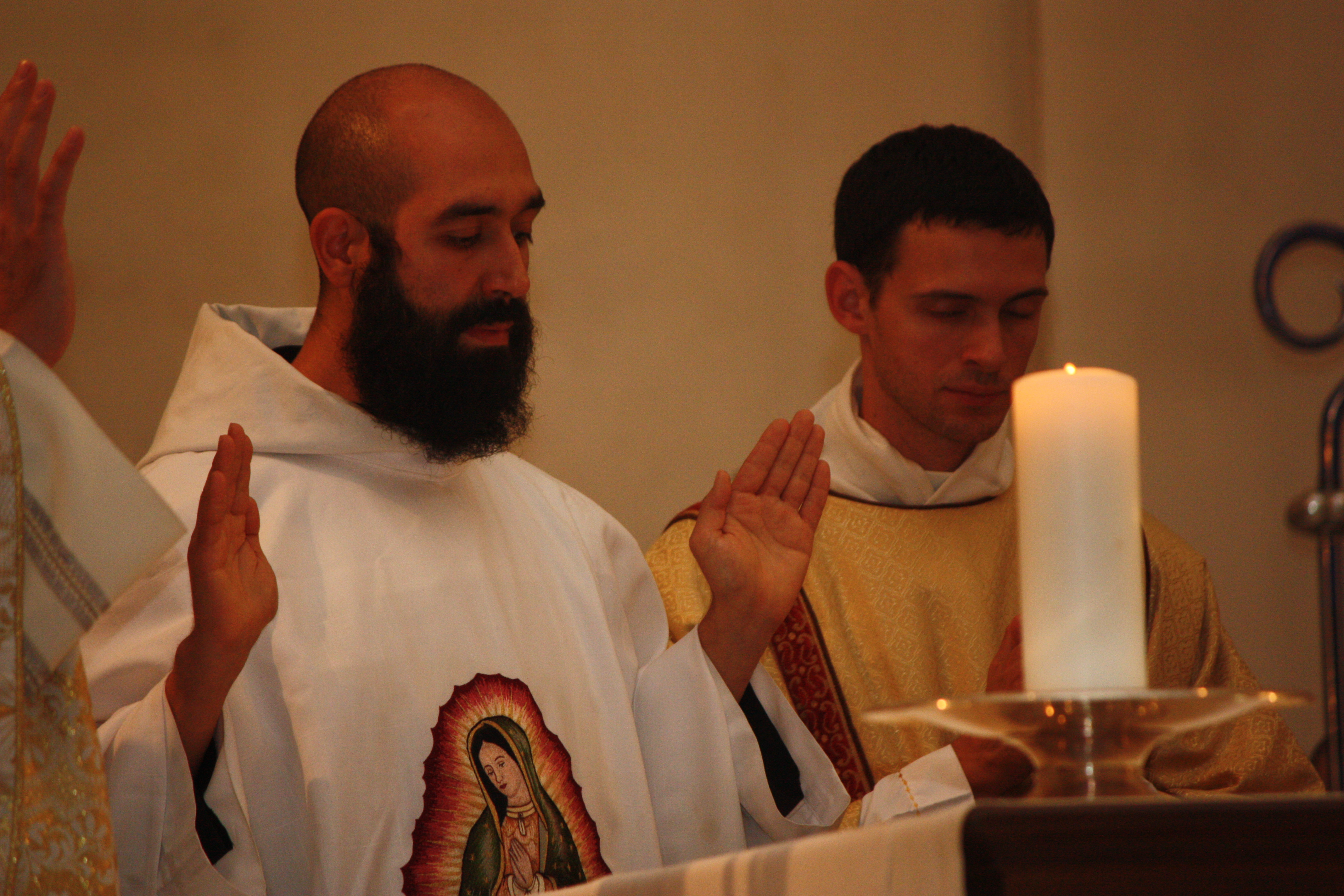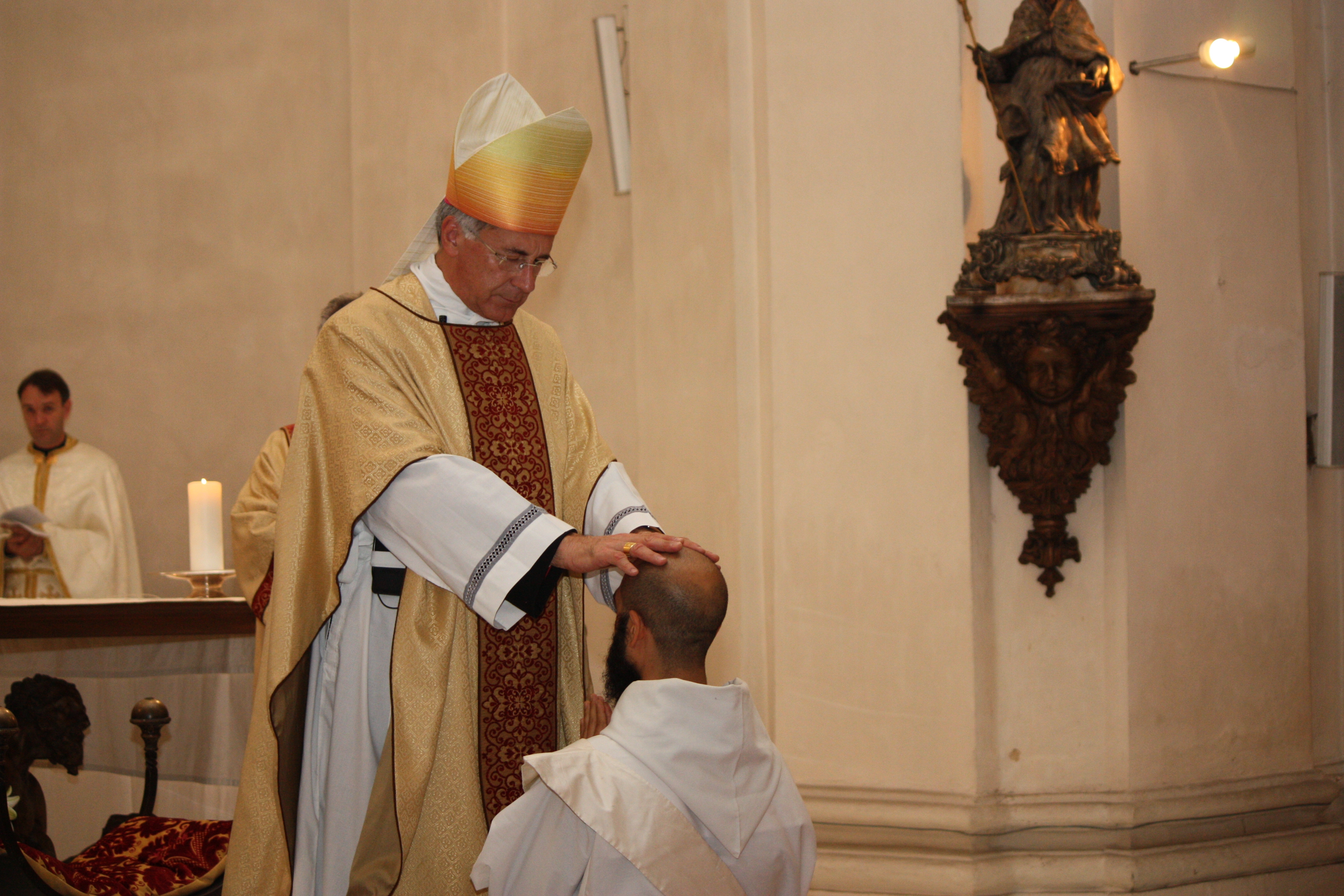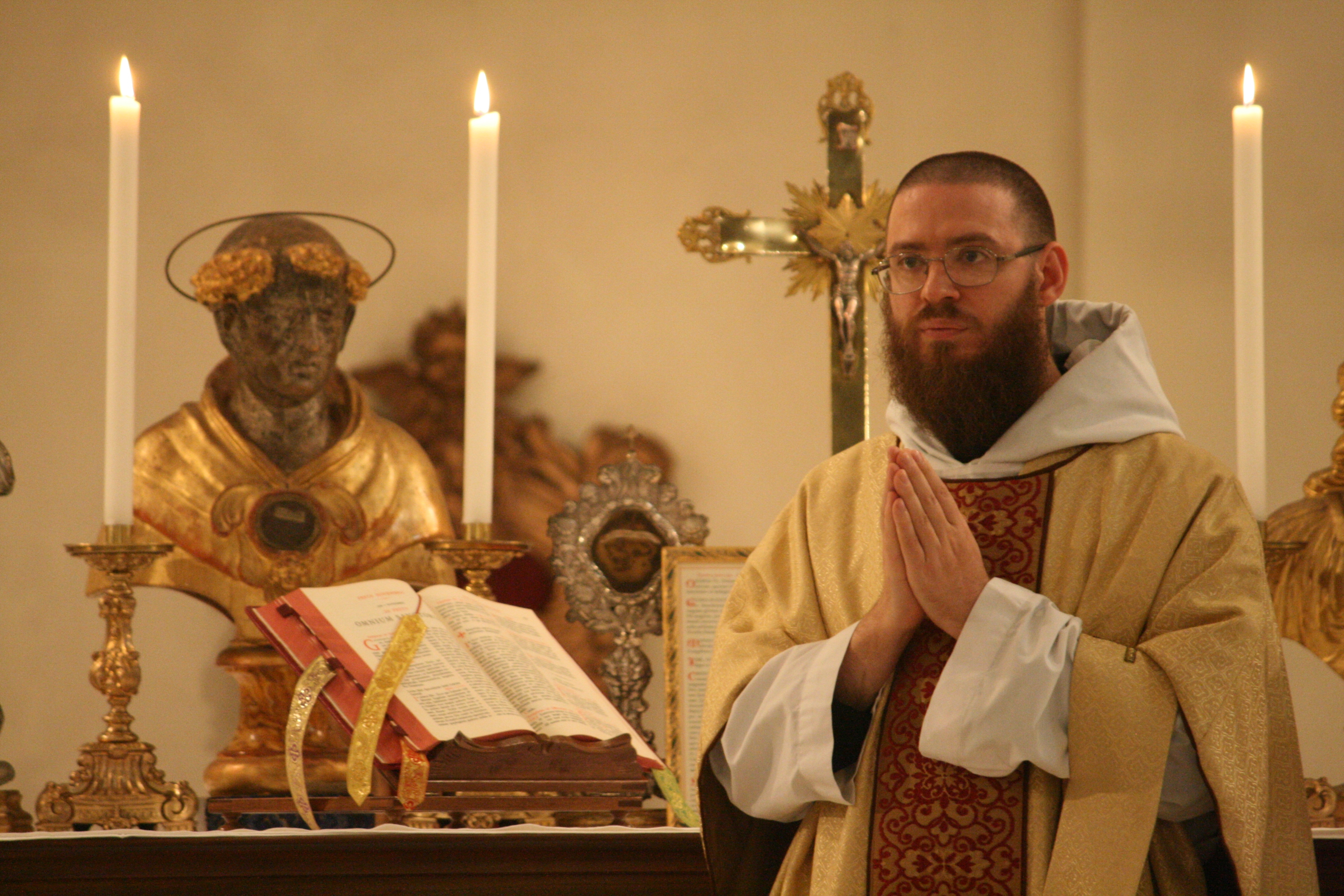Fr. Basil Nixen, O.S.B, an ITI graduate from Norcia, Italy, delivered this beautiful homily on Jan 20th about the Wedding Feast at Cana. Enjoy!
The Gospel reading today is about the Wedding Feast at Cana, one of the most beautiful and luminous mysteries in the life of Jesus Christ. With this Gospel, we continue our reflection on the various manifestations of the Lord. The first manifestation was that of the Magi, which we solemnly remembered two Sundays ago on the Feast of the Epiphany. The second manifestation of Christ was his Baptism in the River Jordan, which we remembered last Sunday. Finally, the third manifestation of Christ is his presence at the Wedding Feast at Cana, especially in the miraculous way in which he transformed the water into wine. The Church has always seen a close connection among these three mysteries in the life of Christ. The thread that unites them is the concept of marriage between God and man: God unites himself to man with a nuptial and indissoluble bond in the Incarnation of His Only-Begotten Son. In the words of St. Augustine, “the word is the bridegroom, the human flesh is the bride” (Eighth homily on the Gospel of St. John). The marital union between man and woman thus acquires a greatness and supernatural beauty, precisely because it becomes a precious image of the union between God and his human creature, and for this reason, it constitutes a perennial source of hope and joy.
It is precisely the joy of marriage that we feel radiate from this Gospel passage. As the venerable Russian monk Father Zosima observes in the classic novel of Dostoyevsky, The Brothers Karamazov: “Ah, that sweet miracle! It was not men’s grief, but their joy Christ visited, He worked His first miracle to help men’s gladness….He who loves men loves their gladness, too”. We all know the indescribable joy that is felt when we see the beauty of a bride, adorned with her jewels (cf. Is 61:10) and ready to give herself to her bridegroom in holy matrimony. Christ wanted to affirm with his presence at the Wedding Feast at Cana that he himself “is the author of Marriage” (St. Augustine, Homily 9 on the Gospel of St. John), and thus he expresses through his acts the words which he speaks with his lips elsewhere in the Gospel, namely, what therefore God has joined together, let no man put asunder (Mt 19:6).
However, since ancient times, marriage has had its enemies. Writing to St. Timothy, St. Paul foresaw that some would even prohibit marriage (cf. 1 Tim 4:3), considering it an evil to be avoided. Such heretics rejected marriage because they considered the human body to be evil, and therefore they saw procreation as the gravest of evils. These are the errors produced by an excessive spiritualism that goes to the point of rejecting the material world, of denying its inherent goodness.
In our days, however, marriage undergoes an attack from the opposite side, from an excessively materialistic society that negates the existence of the spirit, and therefore, the transcendence of man. The modern world is almost convinced of the materialistic philosophy, and thus advances a flawed anthropology, proclaiming that man is exclusively body. According to such a point of view, love is reduced to its physical expression, and consequently, marriage loses its true significance of being a bond of loyalty, becoming instead a relationship that can be broken whenever it ceases to offer a merely materialistic or bodily experience of happiness. This is when divorce enters the picture, which constitutes a true evil and one of the most serious threats to the family.
In addition to materialism, the Holy Father has identified other dangerous errors that threaten the existence of the family in his annual pre-Christmas address to the Roman Curia, which took place last December 21st.
The first consists in a wrong understanding of freedom, which rejects entering into a life-long relationship, because those bonds are a cause of suffering, and therefore are considered to be in conflict with freedom. Here’s what the Pope says:
Man’s refusal to make any commitment – which is becoming increasingly widespread as a result of a false understanding of freedom and self-realization as well as the desire to escape suffering – means that man remains closed in on himself and keeps his “I” ultimately for himself, without really rising above it. Yet only in self-giving does man find himself, and only by opening himself to the other, to others, to children, to the family, only by letting himself be changed through suffering, does he discover the breadth of his humanity.
The second error that threatens the family highlighted by the Pope is the most grave of all, and consists in a rejection of the very human nature revealed in the masculinity and femininity of the human body. The Pope affirms that
According to this philosophy, sex is no longer a given element of nature that man has to accept and personally make sense of: it is a social role that we choose for ourselves, while in the past it was chosen for us by society. The profound falsehood of this theory and of the anthropological revolution contained within it is obvious. People dispute the idea that they have a nature, given by their bodily identity that serves as a defining element of the human being.
The Pope’s words declare that modern man thinks that he can create and choose his nature, and therefore even the family isn’t defined by nature, but by the will of man. According to this reasoning, marriage can consist between two men or two women, thus eliminating the fecundity of offspring and therefore defining human procreation as a simple mechanical action which can be manipulated according to one’s wishes. The Holy Father states that “the manipulation of nature, which we deplore today where our environment is concerned, now becomes man’s fundamental choice where he himself is concerned”.
But we Christians can’t let ourselves be convinced of these errors; instead, we must give full assent to Divine Revelation which states that God created man in his own image, in the image of God he created him; male and female he created them (Gen 1:27). We must let ourselves be guided and formed by this truth, because—as the Pope explains—“The defense of the family is about man himself. And it becomes clear that when God is denied, human dignity also disappears. Whoever defends God is defending man.”
We must turn to Mary to overcome these errors; let us run to Her who destroys error in her humble adherence to the divine truth. Let us pray that the Holy Mother of God will continue to reveal to us a true and authentic humanity, which consists in the full assent of man to the natural law written by God in our bodies. Let us follow her loving admonition to obey her Son in everything, putting into practice her words, do whatever he tells you (Jn 2:5).
(Translated from the original Italian by B. Gonzalez.) http://osbnorcia.org/2013/01/20/marriage
